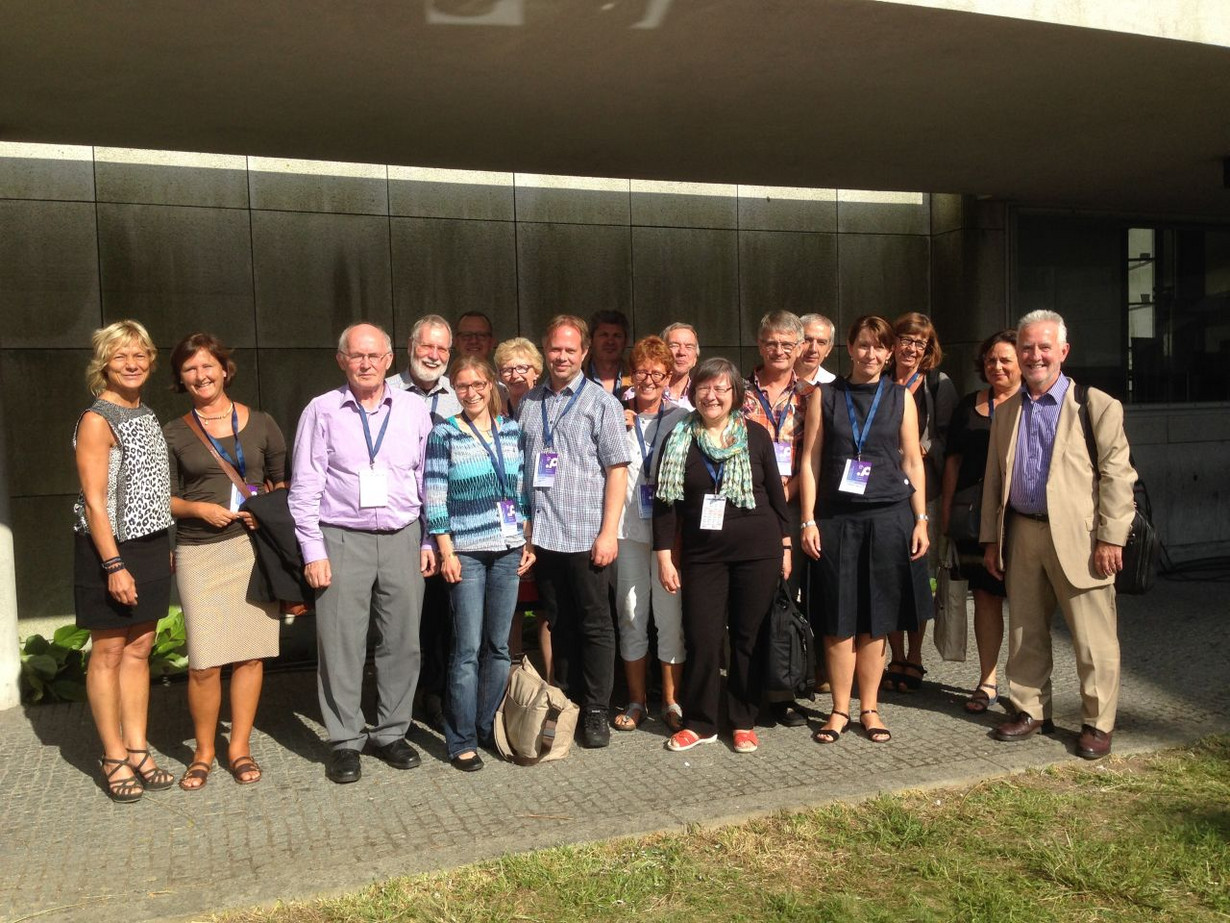Annual Report 2014, Porto

Network 27 is still one of the larger networks of EERA with more than a hundred submissions again this year. This means a lot of work with respect to the management of reviews, the session planning, chairing, etc. More precisely, the call for papers led to 88 accepted contributions (including 8 symposia, 3 workshops, 68 papers and 9 posters) organised into 31 sessions. This is the first time that the network hosted many workshops, among which the WERA workshop "International research network on Didactics and teaching and learning" (submitted /chaired by Brian Hudson) was a high point. Furthermore, the following symposia were arranged with a very good level of attendance and debate :
- Sharing ideas for passionate, radical and innovative approaches to didactics (double symposium submitted / chaired by Carol Taylor)
- Participatory and contextualised development of the physical school environment to fascilitate educational change (submitted/chaired by Pamela Woolner)
- How can a clinical research approach contribute to knowledge building in the teaching profession? (submitted / chaired by Jacguelien Bulterman-Bos)
- Multivocal analyses of a teaching unit. "When dance is taught in English" in primary school (double symposium submittend / chaired by Brigitte Gruson)
- Didactics and "Bildung" (double symposium submitted / chaired by Helmut Johannes Vollmer and Bernard Schneuwly)
- Turning feminist theory into practice: enacting material change in education (double symposium sumitted / chaired by Carol Taylor)
Although many papers sessions were run in parallel with symposia sessions, the level of attendance in the paper sessions was good. Over the past years, we have improved the attractivity of the paper sessions by grouping the papers according to their common thematic features (in terms of content taught and/or type of questions raised) as well as according to contrasted perspectives tied to different research cultures in Europe on teaching and learning. This effort seems to be fruitful to strenghten the attendance.
"Convenors as Dialogue Partners" and Major Topics
The program "Convenors as Dialogue Partners" was launched in 2013 on the website, in order to help new researchers focus on the main topics of interest in the network. This is also a reference for surveying the evolution of the quantity of papers fitting into the topics listed, and identifying new emerging topcis as changes in the direction of the network objectives. One year later, it is too early to draw definitive conclusions, but we can say that the diversity of the papers presented in Porto reflects quite well the following major areas :
- Relating different paradigms for didactic research in Europe
- Frameworks for comparing teaching and learning actions across subjects and educational contexts
- Methodologies for classroom observation and video studies
- Literacies, language use across subjects matters and tacit dimensions of teaching
- Teaching resources, teacher’s work and professional development
Furthermore, it becomes clear that the search for a "common ground" beyond the fragmentation of approaches to didactics consists in elaborating some shared concerns about research on teaching and learning, that can be attended with different theoritical constructions. The content of the discussion in the workshop towards a the developement of the WERA International Research Network tends to confirm this.
The network had no special call this year. However, we have been in touch with the leaders of the successful symposia that happened in Istanbul in order to support them in organising some follow up activities (symposia involving new researchers invited to broaden the discussion on the topics).
This year, only one joint symposium with other networks was arranged (with NW 3 : Curriculum innovation).
All the presentations fit within the overall theme for the conference, but in our network, few address it explicitly. One reason for this may be the broadness of the theme "The Past, the Future and the Present of Educational Research in Europe".